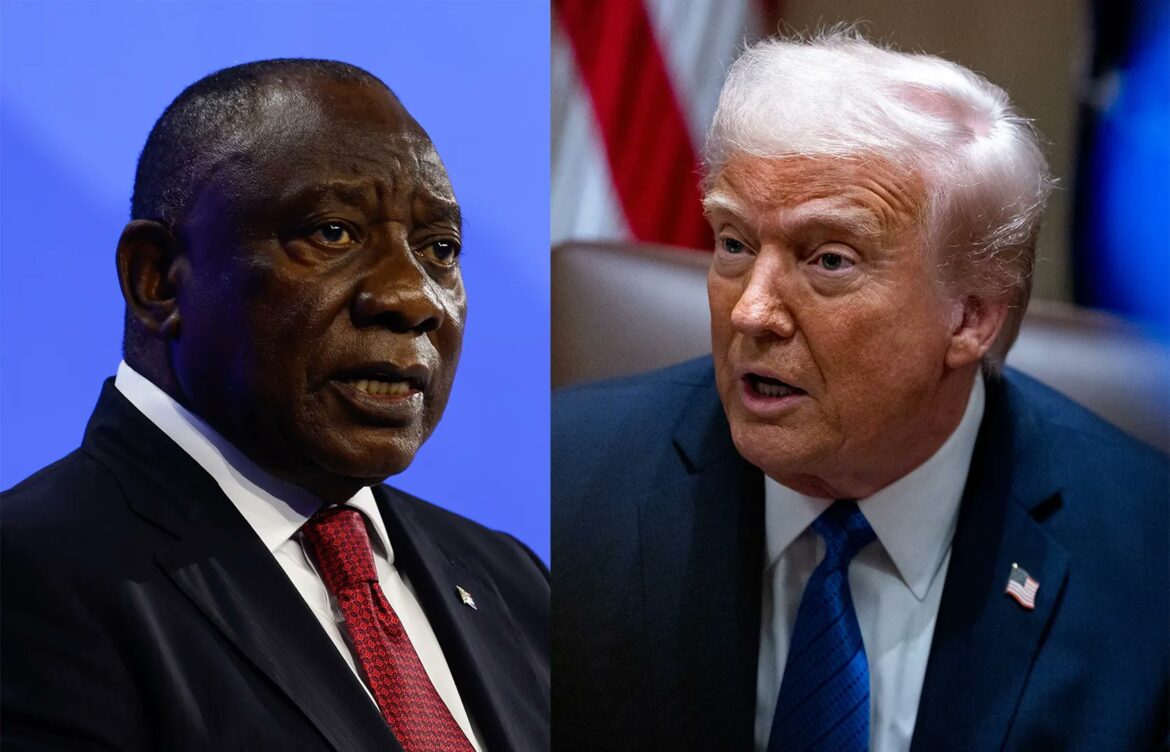President Cyril Ramaphosa has been urged to stand firm and unyielding when he meets U.S. President Donald Trump on May 21—a crucial moment in the effort to mend increasingly strained diplomatic ties between the two nations.
Political analysts, including prominent voices like Prof. Bheki Mngomezulu, have cautioned that Ramaphosa should not allow himself to be bullied or intimidated during the discussions, particularly regarding the controversial narrative of a “white genocide” that has been widely debunked.
Trump’s claims, reinforced by U.S. asylum grants to 49 white South Africans, suggest that white farmers are being targeted in violent attacks. However, official statistics and international research clearly dispute the genocide narrative, showing no credible evidence of a coordinated effort to harm white farmers in South Africa.
Mngomezulu, an expert in political diplomacy, emphasized that Ramaphosa’s negotiating experience during the apartheid era equips him to counter misinformation while staying diplomatic. He also highlighted that South Africa’s land reform policies, including the Expropriation Act, align with international norms and are constitutional—further debunking Trump’s rhetoric.
“Ramaphosa has the ability to firmly defend South Africa’s sovereignty, while also working towards stabilizing relations with the U.S.,” said Mngomezulu. “His leadership will be tested, but he is well-equipped for this challenge.”
As the Trump administration’s combative style and racially charged rhetoric loom large in the upcoming meeting, Ramaphosa faces a delicate balancing act: defending South Africa’s dignity and sovereignty while attempting to stabilize relations and advance mutual interests between the two countries.
The outcome of Ramaphosa’s May 21 meeting could not only redefine the future of U.S.-South Africa relations but also set a precedent for how African nations navigate diplomacy under pressure from major world powers.
